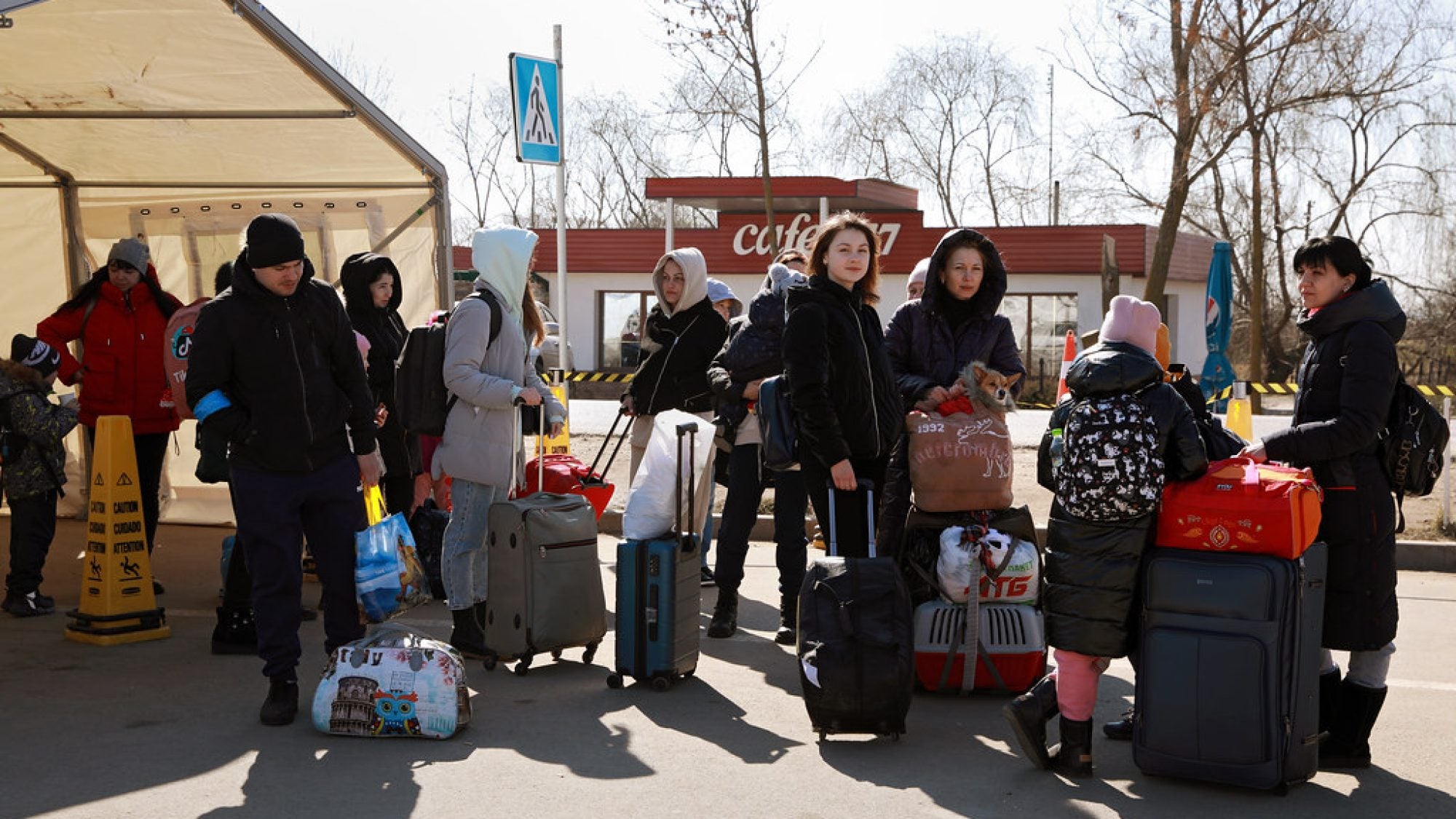
Title: Understanding the Ukrainian War Through Refugees’ Eyes
The war in Ukraine has upended daily life for ordinary Ukrainians, forcing many to choose between staying in their homeland and leaving the country for their own safety. Viktoriia Pliushchakova and Ihor Pliushchakov, a couple from Mariupol, Ukraine, are a few of those who decided it would be best to leave Ukraine. Through the help of Welcome.US, the United States’ largest resettlement program, we sat down with them to discuss their perspective on the war in Ukraine. This interview was conducted with the help of Anastasiya Zitnik, who acted as the interpreter.
GJIA: Could you tell me about your lives before the Russian invasion and before coming to the United States?
Pliushchakov: We grew up in Mariupol, the city that was nearly erased off the Earth. That is where I met Viktoriia. I was working in construction, mostly as an independent contractor doing a little bit of everything. I fixed and sold cars, too. Viktoriia was a kindergarten teacher. We moved to the region surrounding Kyiv at the very beginning of the conflict in 2014, because it was the safest. That was where we were living when the war started in 2022.
How did you learn about the invasion? What were your thoughts when you first learned about it?
We had already heard rumors that Russia was going to invade, but we felt that it was going to be similar to 2014—where the Russians were just going to shoot a little bit at the beginning. That was how we were consoling ourselves and our family. We had all our five children with us, and we were trying to stay calm. We did not think the invasion was going to be as forceful as it was.
When did you realize this invasion was different?
Right on [February] the 24th at five o’clock in the morning when we heard the explosions, we realized it was not going to be anything like 2014. We realized it was going to be the beginning of a large conflict. We stayed in the area around Kyiv for up to a week after the invasion.
Did you hear anything about assistance from the West or about how you should evacuate?
We had spent a week in the basement of the apartment where we were staying. We watched Russian bomber planes fly extremely low. They were targeting the area because of the location of the main airport. The planes were flying in sets of threes, and we witnessed the situation worsening. We finally decided to evacuate to western Ukraine. We subsequently drove through Hungary, Slovakia, the Czech Republic, and finally ended up in Haiterbach, Germany. We lived there for about six months before coming to Oklahoma.
Did you think you would ever experience something like this in your lifetime?
No, we never thought anything like this could happen. No one in Ukraine ever thought that a war in the middle of the 21st century could happen. Everyone hoped until the very end that it was not going to happen. We could not imagine that something like that would happen to our family: that we would lose everything, that we would be thousands of miles away from home.
In terms of the help and assistance you have received, do you think that the West has done enough? Is there more that Western governments could do?
I think that it is definitely adequate help. I am very grateful and thankful to the American government for the help they are providing to Ukraine and to the people of Ukraine.
Has the invasion changed your opinions toward Russia at all?
Of course, everything changed since the beginning of the war. Before the war, everyone perceived Ukraine and Russia as brothers, and of course, no brother would ever do such a thing to the other. But since the war, everything has changed; there are no positive feelings toward Russia because they came to kill and occupy for no reason—just because they felt like it.
How are you doing now? What are your lives like in America?
I am very happy. It is unbelievable that our sponsors opened up their home and heart to such a large family. There are eight of us now and I feel very much at home thanks to our sponsors; they have been very kind and helpful.
Is there anything the media can do to help Ukrainian refugees? Is there anything that should be talked about that isn’t being talked about?
Of course. The conflict has been talked about in the media, but it would be good to bring a lot more media attention to the bombs that are falling on Ukraine. Bombs are still falling on peaceful people, kids, and women. People are dying every day. There are at least a few cities being bombed every single day. It is important to close the skies above Ukraine and that should always be talked about.
Thanks to Anastasiya Zitnik, we are able to provide this account that would not otherwise have been available in English. As a result of the translation process, responses to our questions may be summaries or shortened from the original Ukrainian.
Image Credit: Aurel Obreja (UN Women), CC 2.0
Recommended Articles

In 1953, Kuwait established the world’s first sovereign wealth fund to invest the country’s oil revenues and generate returns that would reduce its reliance on a single resource. Since…

Cruises have increasingly become a popular choice for families and solo travelers, with companies like Royal Caribbean International introducing “super-sized” ships with capacity for over seven thousand…

In March 2025, widespread protests erupted across Türkiye following the controversial arrest of former Istanbul Mayor Ekrem İmamoğlu, an action widely condemned as politically motivated and…